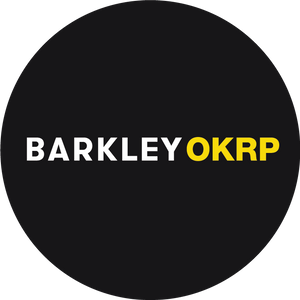
Can a Big Win Save a Dying Business Model?

There’s nothing like a new business win to change the mood of an agency on a losing streak, especially if it puts Captain America on your client list. But there’s a catch: the win we’re talking about here could be a sugar high.
A few days before Publicis Groupe, along with Omnicom, won $2 billion worth of business from Disney, the Paris-based holding company had a dismal earnings report. Their stock dropped 15% immediately after the call.
The big win—after presentations in Hong Kong, Mumbai, Dubai, London, and Buenos Aires (was this pitch a Bond film?)—was a credit to Epsilon Data Management, their secret weapon, which Publicis acquired earlier this year.
Considering that Epsilon probably knows what you had for lunch yesterday, they should also know what you might be interested in watching on Disney+, the brand’s new streaming service that’s about to go to war with Netflix.
Kudos to Publicis. They’re changing their approach to the business. Big data thinking is becoming cost of entry these days, and they have more than covered that with Epsilon, along with Zenith in media.
So how did Wall Street react after Publicis’s Disney win, which my friends here at LBB report is comparable to winning Unilever?
With a yawn.
Traders can be cynical, and they may not understand the agency business well. But I fear there’s something deeper going on here.
All four of the ad holding companies are in straits like Publicis. A trend-line chart of market performance over the last three years is a horror show for the industry, which trails the S&P 500 badly. Most embarrassing are market valuations. When Wall Street looks at Publicis and the others, they see commodities, and they price them like a bank or a public utility.
Let’s shift focus for a minute, and look at some other news breaking last week. No, not about Syria and the Kurds, Brexit, or impeachment; just routine news coming out of the consulting world—one a high-profile story, one a blip on the radar. Both notable.
First, McKinsey released a report on the global status of the banking industry, alleging that 60% of the world’s banks would fail during a significant global downturn. The story was widely covered, in part because of its attention-grabbing findings but also because McKinsey is an E.F. Hutton—when they talk, people listen.
Second, there was a seemingly innocuous press release from a global engineering firm based in Kansas City, where my agency, Barkley, is based. Burns & McDonnell announced the formation of a consulting subsidiary, dedicated to bringing “more value to every project with business optimization, technology and security consulting.”
Mind you, this is an engineering company, moving aggressively into strategic consulting with a data-centric mindset. This is a trend in the engineering and design/build worlds. Burns & McDonnell in their business line are like McKinsey and Accenture in marketing. They’re doing to traditional architecture firms what the big consultants are doing to advertising firms: they’re pushing them into the role of doers and activators—while they assume the role of big thinkers.
This is the knowledge economy at work.
Thus, when McKinsey speaks on banking or some other sector, board rooms, big media, and Wall Street listen. If Publicis or Omnicom did the same, there would be little notice.
That’s why Wall Street yawned at Publicis’s big win. It’s big data, it’s advanced, it’s cool. But it’s what is now expected of the category. Good chance the margin on that $2 billion will be low.
We can scorn traders who don’t appreciate a Cannes Lion, but they are telling the traditional creative industry something: “You are living on your past glories. When Ogilvy, Bernbach, and Rubicam (yeah, we know those guys) walked the earth, board rooms listened to them. They’re not listening anymore. You’ve moved too far downstream.”
Therein lies the problem. What’s the solution?
It’s not to imitate McKinsey. It’s certainly not the holding company model. Nor is it a cult-like invocation of creative tradition.
We need a disruption of the holding company model that leapfrogs consultant thinking, but accepts that their style of thinking is essential. Agencies are obsessed with execution. They need to be obsessed with solving the challenge of growth. The consultants prove that obsession, often with robotic, predictable MBA-style solutions. But it’s what their audience understands.
Agencies must decisively move upstream. They possess daunting creative skills but have lost sight of the decisive factors that drive growth.
Captain America might save the industry, but don’t hold your breath. Wait for the sequel to learn who or what comes to the rescue.
David Gutting is SVP/director of strategic projects at Barkley













